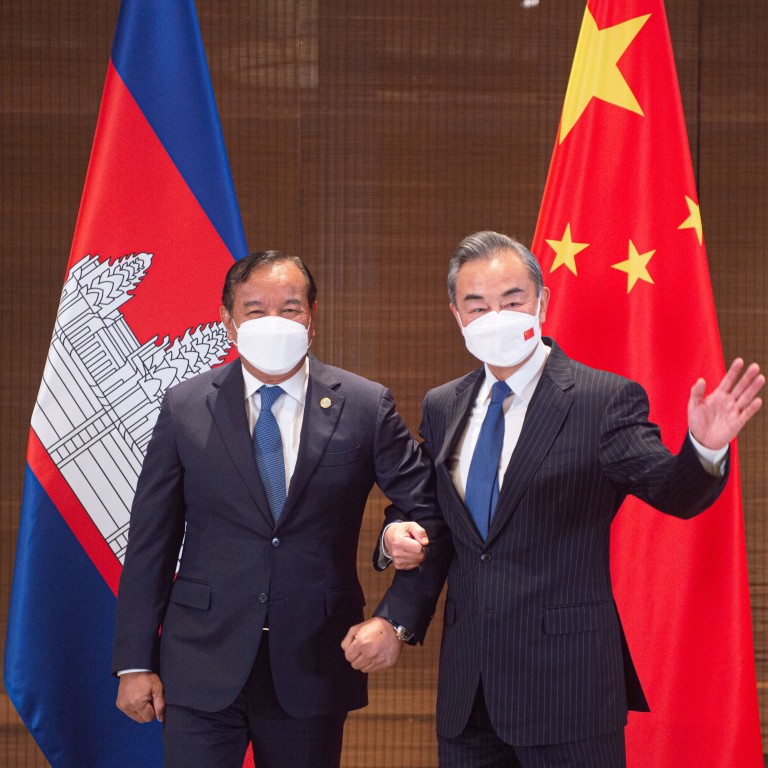
China urges Southeast Asia to join united front against new cold war
- Chinese foreign minister calls on counterparts in Malaysia, Cambodia and Laos to reject efforts to undermine peace and stability
- Coronavirus vaccines also on agenda in Wang Yi’s weekend of talks
This was in contrast to efforts to “decouple” or provoke a “new cold war”, Wang said, in an apparent reference to the United States.
He said China promoted international unity over division, cooperation over confrontation, and stability over conflict, adding that countries should respect each other’s sovereignty and not interfere in others’ internal affairs.
Wang also held talks with Cambodian Foreign Minister Prak Sokhonn in Anji on Saturday and had a meeting Laotian Foreign Minister Saleumxay Kommasith via video link on Friday.
Asean members, Russia conclude first joint naval exercise
The ties have been strengthened amid growing great power competition in the region, with the US also seeking to bolster relations with Asean countries in its push for a “free and open Indo-Pacific”.
In their meeting, Wang and Saifuddin agreed to continue cooperation to combat Covid-19, including on research and development of vaccines and treatments, and vaccine production, according to China’s foreign ministry.
Malaysia’s The Star quoted Saifuddin as saying Malaysia welcomed “prominent vaccine companies from China” to set up factories and R&D centres in the country, contributing to Malaysia’s goal of producing its own vaccines.
The two countries agreed to build on their partnership in the “post-pandemic” period, maintaining high-level communication on major issues and using consultation mechanisms on strategic defence and combating transnational crime to “jointly make positive contributions to regional peace and stability”, the foreign ministry said.
They also agreed to continue to develop China-Asean ties, including boosting economic integration and accelerating talks on a long-awaited South China Sea code of conduct.
Beijing pushes South China Sea code of conduct for anniversary with Asean
In his meeting with Cambodia’s minister Sokhonn, Wang pledged to continue vaccine assistance and help the country to build a vaccine filling factory.
China was also willing to advance cooperation in major infrastructure projects such as expressways and airports, the digital economy, and import more agricultural products from Cambodia, Wang said.
Cambodia also supported China’s “Global Development Initiative”, a plan for greater coordination between countries on sustainable economic development proposed by Chinese President Xi Jinping in a speech to the United Nations General Assembly in September.
Both Malaysia and Cambodia expressed support for China’s hosting of the 2022 Winter Olympics in February, according to the foreign ministry.
The event has faced headwinds from rights groups and British and US lawmakers over concerns about China’s human rights record.

